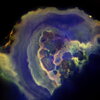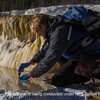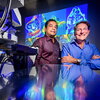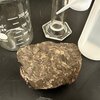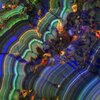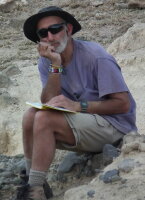
The study of life‘s many roles in the Earth‘s system, and of life‘s evolution through Earth History constitute the subject of Geobiology, broadly defined. Research groups at Illinois consider aspects of geobiology at two scales.
Geomicrobiology: Prof. Bruce Fouke focuses on understanding biocomplexity in geologic environments, most notably coral reefs and hot springs. He has ongoing projects in the southern Caribbean, addressing issues such as black band disease affecting corals, and in Yellowstone, where his work addresses the role of microbes in the microfacies of carbonate terraces. Prof. Rob Sanford's research focuses on the microbial ecology of biogeochemical processes, particularly those that occur in aquifers, soils and other subsurface environments. The emphasis of his experimental work has been in characterizing the role of respiratory anaerobic organisms, the microbial ecology of anaerobic groundwater, and the microbiology in calcium carbonate depositing environments.
Paleobiology and Paleoecology: Dr. Max Christie is a paleobiologist and stratigrapher interested in how extinction shapes communities. His work focuses on how an organism's role in an environment is affected by extinction, and how the shape of an organism can provide resistance or susceptibility to extinction. Prof. Feng Sheng Hu (primary appointment in the Department of Plant Biology) focuses on paleoecology of forest floras, and how they are affected by climatic change during the Quaternary. He currently supervises projects concerning abrupt climate change and ecosystem response in the mid-continent, climate change, and soil carbon in the tundra, and climate-fire-vegetation interactions in boreal ecosystems.
Faculty working in Geobiology, Geomicrobiology and Paleobiology


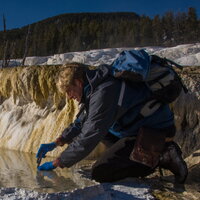
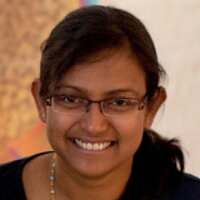
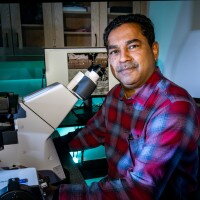
Related News
- Earth science and environmental change professor Bruce Fouke and his interdisciplinary team at the University of Illinois Urbana-Champaign have pioneered the field of GeoBioMed, a unique...
- Check out this article from the Yellowstone Institute featuring Prof. Bruce Fouke explaining the importance of Yellowstone in fields as different as medicine and space exploration! Dr. Fouke has...
- Take a look at ESEC Professor Bruce Fouke and IGB Researcher Miyandi Sivaguru's fascinating work combining Geoscience and Medicine (GeoBioMed)! Cardiovascular disease is the leading cause of death...
- Thanks to a generous donation from Michael (MS, ’02, Earth Science & Environmental Change) and Lalana Fortwengler, the Tom L. Phillips Memorial Fund for Paleobotany has supported graduate...
- Take a look at this news story on Mammoth Hot Springs featuring Earth Science and Environmental Change Professor Bruce Fouke! An expert on Mammoth Hot...
- What causes the 78% recurrence rate in patients treated with shock wave lithotripsy (SWL) for calcium oxalate (CaOx) kidney stones? Shock wave lithotripsy (SWL) is the most commonly...
- Geology may play a part in solving one of the medical world's most painful problems! In a collaboration between the University of Illinois and the Mayo Clinic, researchers have shown that...
